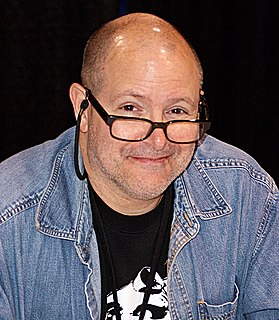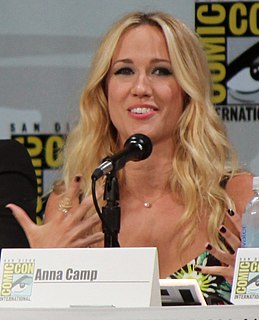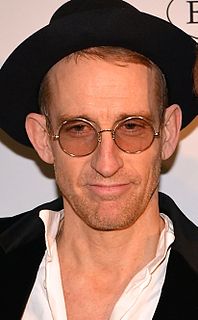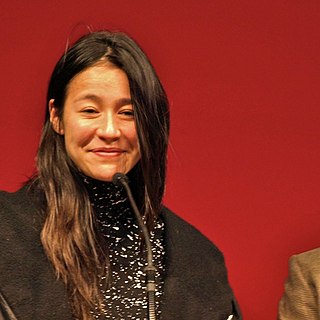A Quote by Shane Carruth
There is commerciality in storytelling, even in a film or a piece of literature. These things exist. That's why stories came to be: to hold attention and, while you're not looking, you'll get hopefully some nutritional value that the author has been working up. That's narrative; that's passing stuff down.
Related Quotes
Everything has been for the [President] election for the last couple of months. Since the Democratic National Convention, it's been a dead run to get out as much content as possible and do as much as possible. Then, I go back to writing the screenplay I was working on, which is an original piece - a period piece that I will hopefully finish a couple of months after that, and hopefully I can convince some unsuspecting fool studio to buy.
I think acting came later in life when I went to college. I started out there. I wasn't a big star in the school plays or anything. I guess I just really liked stories. I was an English-literature major, and that's all about stories and narratives. Film and theater are very powerful storytelling mediums. You sit in a dark room and enter another world. I love that as a member of the audience, and I sort of wanted to get on the other side.
Death of the Father would deprive literature of many of its pleasures. If there is no longer a Father, why tell stories? Doesn't every narrative lead back to Oedipus? Isn't storytelling always a way of searching for one's origin, speaking one's conflicts with the Law, entering into the dialectic of tenderness and hatred?
My daughter is reading various Young Adult vampire stuff, and I ask her, "Is there even a bad vampire in the story?" There's always a good vampire now, but do any of them sleep in coffins? And I would bring her down to my library and say, "Here's every classic vampire literature. There are coffins, there's this, there's that," you know? "When you get to the YA stuff, you may try some of this stuff just to see where it came from."
I feel like I've found my voice in the actor's business. Because when you first get out of school and you're looking for jobs, you don't want to rock the boat - you can't rock the boat. You'll get known for being that sassy girl that, like, has no résumé and no one wants to work with her. But now, I'm "proven," at least in the television world, and hopefully in the theater world. I'm working on the film world. Unfortunately, it takes a while to build that kind of street cred. It's been recently that I even started to have more confidence in myself.
One of the reasons why I think virtual reality, as a narrative format, is never going to go beyond the short-form immersion space is because the bedrock of visual storytelling is the reverse angle. If you can't look into the eyes of the protagonist, you cannot hold people's attention for more than 15 minutes.
Reading with an eye towards metaphor allows us to become the person we’re reading about, while reading about them. That’s why there is symbols in books and why your English teacher deserves your attention. Ultimately, it doesn’t matter if the author intended the symbol to be there because the job of reading is not to understand the author’s intent. The job of reading is to use stories as a way into seeing other people as a we ourselves.
Unfortunately, when you're working in film, it's this huge machine, and you've got to get everyone right there, so you get kind of locked into things. I'm not sure where the artistry in film making is. It's usually that moment when you're on set and you're working with the actors. That's the time to play around, the moment of theater. And then you can shape things. But a lot of it is just managing stuff. It's upsetting because you get away from the core.






































